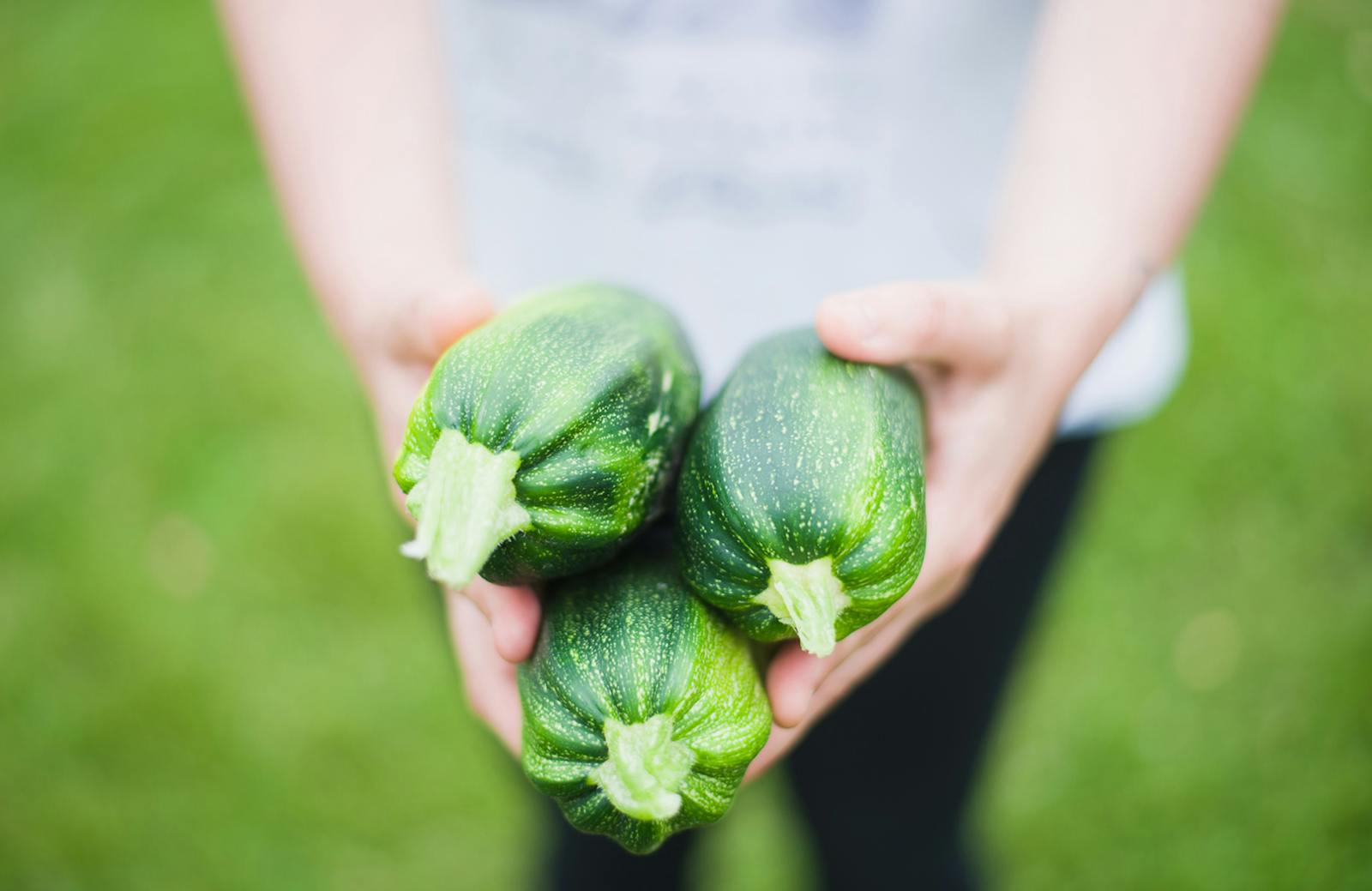Simple Answers for Effective Home Composting
Can You Compost Zucchini Plants? Learn the simple steps to break down zucchini plants and safely add them to your home compost pile.
Ever wondered if you can compost zucchini plants after the growing season?
The answer is yes—zucchini plants are great for home composting, whether you use a traditional compost bin, try vermicomposting with worms, or put garden waste into a compost tumbler.
Composting means turning plant scraps into rich, crumbly compost that helps your garden thrive and keeps waste out of landfills.
Home composting matters because it transforms your zucchini plants and kitchen scraps into something useful for your garden.
It’s simple, saves money, and helps protect the planet, one compost pile at a time. Whether you’re just starting with compost or looking to recycle more garden waste, you’ll find practical guidance in this post.
Throughout the article, you’ll learn about the basics, discover tips for every composting method, and see how composting can fit into every season.
Key Takeaways:
- Zucchini plants can be added to your compost pile, worm bin, or compost tumbler.
- Composting turns garden waste into valuable nutrients for your soil.
- You don’t need fancy tools to get started, but options like vermicomposting or tumblers can make things easier.
- Composting helps you recycle, save space in the landfill, and support a healthy, sustainable garden.
Can You Compost Zucchini Plants?
Zucchini plants can pile up quickly at the end of the season, especially if you love a bountiful vegetable garden.
But what happens to all those big leaves, thick stems, and the last few fruits that never seemed to ripen?
If you’ve wondered “can you compost zucchini plants?” the good news is yes—and it’s easier than you might expect.
Composting zucchini plants is a smart way to recycle garden waste, feed your soil, and keep your compost bin or tumbler working hard for you.
 Photo by Polina ⠀
Photo by Polina ⠀
Why Composting Zucchini Plants Works Well
Zucchini plants are made up of soft stems, lush green leaves, and fruit that break down quickly.
Unlike woody branches or tough stalks, the plant’s parts offer a big boost of moisture and green (nitrogen-rich) material to your compost pile.
Here’s why they fit right in:
- Quick Decompose: Zucchini leaves and stems don’t hang around long. Chop them up, toss them in, and you’ll see them soften fast.
- Nutrient-Rich: They add valuable nutrients for soil health, especially when combined with dry brown materials like leaves or shredded newspaper.
- Waste Reduction: Composting keeps what could be heavy, bulky waste out of the landfill.
If you use different composting methods, like a traditional pile, compost tumbler, or vermicomposting bin, zucchini plants work in all of them.
Just make sure the plant material is cut into smaller pieces to help everything break down faster, especially in a tumbler or worm bin.
Tips for Composting Zucchini Plants Effectively
To get the richest, best compost from your old zucchini plants, it helps to follow a few simple tips:
- Chop & Mix: Cut up leaves and stems before adding. This speeds up decomposition and makes turning the pile easier.
- Balance Greens and Browns: Zucchini provides “green” nitrogen-rich material. Add “browns” like dry leaves or cardboard to prevent a slimy pile and balance moisture.
- Remove Diseased Plant Parts: If your zucchini was healthy, go ahead and compost it all. If you see signs of serious diseases or heavy pest problems, like powdery mildew covering every leaf, you might want to dispose of the worst bits in the trash or check composting guidance for specifics. Compost can sometimes kill off minor issues, but not all home compost piles reach high enough temperatures.
You can find more about safely dealing with garden plant waste in this detailed post on how to dispose of courgette plants.
What to Watch Out For
Just a few important things to keep in mind when composting zucchini plants:
- No Large Fruits: If any zucchini fruit is overgrown, heavy, or rock-hard, cut it up or compost in smaller chunks. Whole fruits take longer to break down.
- Seed Management: Zucchini seeds sometimes sprout in your compost. If you don’t want surprise seedlings, scoop seeds out first or hot compost your pile.
- Pest and Disease Risks: Healthy plants are best for compost. Most common garden diseases will compost safely, but if you’re unsure, double-check sources like Can I compost powdery mildew leaves? for more confidence.
Composting Zucchini Plants in Different Systems
You aren’t limited to one way of composting zucchini plants! Whether you choose classic composting, try a compost tumbler, or use worms, you have options.
Here’s how zucchini works in each:
- Compost Tumbler: Chop everything well, and add some dry stuff so it tumbles and breaks down quickly.
- Vermicomposting: Tender leaves can feed your worms, but avoid adding too much fresh green at once, or it can get too wet.
- Compost Pile/Bin: Classic and easy. Just keep the pile balanced and turn it every now and then for faster results.
If you’re just getting started, check out these 6 effective composting methods you can try at home.
Key Takeaways
If you’re looking to answer “can you compost zucchini plants?” here’s your simple guide:
- Zucchini plants add valuable nutrients and moisture to your compost.
- Cut plants up for faster breakdown and mix with dry materials.
- Healthy plants are perfect for the pile; avoid heavily diseased bits.
- Use any composting method—tumblers, piles, or even worms—for great results.
- Always balance greens and browns so everything breaks down smoothly.
If you want more guidance on composting garden scraps at home, find more practical tips in the starting composting at home guide. And if you have unique composting questions, try the Composting FAQ Bot for instant advice.
For more in-depth composting tricks, see Composting 101 for beginners and experienced composters alike.
How to Compost Zucchini Plants Successfully
If you’re staring at a pile of spent zucchini vines and wondering “can you compost zucchini plants,” you’re not alone—this question pops up every harvest season.
Zucchini plants break down rapidly and offer a lush, green boost to your compost heap. Getting the most out of your composting (whether you use a pile, compost tumbler, or worm bin) is all about how you prepare and balance what goes in.
Let’s look closer at the best ways to chop, layer, and manage zucchini plant waste so you turn old stalks and leaves into rich compost for your garden.
Chopping and Mixing for Faster Decomposition
 Photo by Kaboompics.com
Photo by Kaboompics.com
Breaking big zucchini leaves and thick stems into smaller pieces helps your compost “cook” much faster.
Why? More surface area means microbes and worms can get to work right away. Chopping also keeps your pile loose and easy to turn, preventing mats that block air.
Here’s how to layer and mix zucchini parts for happy composting:
- Chop all plant parts. Cut stalks and leaves into fist-sized chunks.
- Start with a brown layer. Place dry, carbon-rich material (like straw, leaves, or cardboard) in your bin or pile first.
- Add your zucchini greens. Mix in chopped zucchini for a nitrogen boost.
- Alternate layers. Keep stacking greens (fresh material) and browns (dry material) so everything stays balanced.
- Toss or turn the pile every week. This aerates the pile and keeps the decomposition process humming.
Balancing greens (like zucchini plants, kitchen trimmings, or coffee grounds) and browns (such as dry leaves, shredded paper) is the secret to avoiding slime or smells.
For more, check out this step-by-step from Constructing a Compost Pile: Step by Step.
Dealing with Diseased or Pest-Infested Zucchini
No one wants to spread plant disease in their garden. If your zucchini plants had healthy leaves and stems, you’re safe to compost them all.
However, composting material that’s heavily diseased or infested with persistent pests isn’t always a good idea—especially in a home compost system that might not get hot enough to kill pathogens.
What should you toss and what can you keep?
- Skip: Leaves and stems with white mildew, black spots, or visible insect eggs. These can survive low-heat compost piles and pop up next season.
- Compost: Healthy foliage, spent flowers, and fruits without disease.
If you see any mystery fuzz or suspect something’s wrong, the safe bet is to toss that part in the bin or municipal green waste.
Keeping compost free of plant disease means a safer garden all around. For more ideas about composting garden waste safely, see Making and Using Compost.

Tips for Using Compost Tumblers or Vermicomposting Systems
Both compost tumblers and vermicomposting bins handle zucchini plants well, but each has its own quirks.
With tumblers, you get speed; with worms, you get rich, crumbly castings. Both approaches need the right mix and careful moisture control.
Compost Tumbler Tips
- Always add chopped zucchini so it tumbles freely and doesn’t clump.
- Layer materials just like in a regular pile—alternate green (zucchini, veggie scraps) with brown (leaves, shredded cardboard).
- Spin or turn the tumbler every few days for good airflow and quick breakdown. Extra air = faster compost.
- Watch moisture: Zucchini is very wet. If the compost feels soggy, throw in more brown, dry materials, and leave the lid off for a bit.
- For more advice, visit this quick guide to composting tumblers.
Vermicomposting Tips
- Feed worms only small amounts of chopped zucchini at once. Too much can make the bin soggy and smelly.
- Always balance with bedding (like shredded newspaper or cardboard) for moisture and air.
- If your worm bin feels soupy, add extra bedding and fluff up the pile to let in more air.
- Give your worms a varied diet for best results—mix zucchini in with other kitchen scraps.
- For insight on combining both systems, read this overview on Compost Tumbler Vermicomposting.
For a deeper look into home composting styles, check out the 6 effective composting methods you can try at home.
If you ever find yourself with more composting questions or want quick how-to tips, ask the Composting FAQ Bot for instant advice.
These resources make it easy to build healthy compost from zucchini plants and just about any kitchen or garden scrap.
Key Takeaways:
- Chopping zucchini plants helps them break down quickly in any composting system.
- Always balance green and brown layers for a healthy, odor-free pile.
- Don’t compost diseased or heavily infested plant material in a home pile—avoid spreading trouble.
- Compost tumblers need frequent turning and dry brown material if you add lots of zucchini.
- Vermicomposting loves zucchini in moderation, mixed with bedding and other foods.
So, as long as you follow these simple steps, you’ll turn old zucchini plants into garden gold, keeping your compost bin productive and your garden happy.
Key Takeaways for Composting Zucchini Plants
When your zucchini plants outgrow the garden or fall to disease, knowing how to turn them into compost gold is a game-changer for any home gardener.
Composting zucchini plants is not just practical—it’s also surprisingly simple.
Let’s run through the essentials and answer key questions, so you can confidently add zucchini vines, leaves, and fruit to your compost, compost tumbler, or even your worm bin.
What’s Special About Composting Zucchini Plants?
Zucchini plants bring a lot of value to your compost. Their lush, juicy leaves and stems break down faster than many woody garden leftovers.
Because they’re packed with moisture and nutrients, they ignite the composting process and deliver a “green” boost every pile needs.
 Photo by Les Bourgeonniers
Photo by Les Bourgeonniers
If you’re wondering, “can you compost zucchini plants?”—yes, you absolutely can.
Just remember to chop the plants into pieces, mix them with brown, dry material, and keep an eye on the moisture.
Key Takeaways for Home Composters
Let’s make composting zucchini even easier. Here are the lessons to remember:
- Chop Before You Drop: Cut up zucchini stems and leaves for faster composting. This keeps the pile from getting slimy and speeds up decomposition.
- Balance Your Pile: Too much green material (like fresh zucchini plants) can make compost wet and smelly. Balance with dry “browns” such as leaves, shredded paper, or straw.
- Compost Healthy Plants: It’s best to avoid composting plants with major pest or disease problems. Powdery mildew is usually safe, but other issues, like vine borer infestations, should go into the trash or yard waste.
- Use Any Composting System: Whether you compost in a pile, a compost tumbler, or use vermicomposting, zucchini plants fit in. Each system just needs a regular mix of greens and browns.
- Expect the Unexpected: Sometimes, buried seeds may sprout “volunteer” zucchini plants in your compost! If that happens and you don’t want surprise squash, remove seeds before composting.
Why Composting Matters for Gardeners
Composting, at its heart, is recycling nature’s way. Turning old zucchini vines into crumbly, dark compost returns nutrients to your garden beds and reduces trash sent to landfills.
Plus, healthy compost helps your next crop of veggies thrive. If you’re excited to grow better zucchini in the future, use a few inches of finished compost over your planting site, as shared in this helpful guide on growing zucchini.
- Boost for Soil: Compost enriches soil with nutrients and improves texture for roots to grow strong.
- Less Waste: Composting keeps bulky plant material out of the landfill, shrinking your household waste.
- Supports Worms and Microbes: All those chopped zucchini pieces feed the tiny “helpers” in your compost, keeping the process active and healthy.
Echoes Across Composting Methods
From compost tumblers to classic piles and worm bins, every approach to home composting welcomes zucchini plants, as long as you manage the mix and moisture.
Vermicomposting, for example, is a fun indoor option, but go easy—worms love zucchini, just not in big batches.
Want to explore which system is right for you? Visit the 6 effective composting methods overview to compare your options.
Quick Checklist for Composting Zucchini Plants
Here’s a handy checklist to keep your composting successful:
- Chop zucchini vines, leaves, and fruit into chunks.
- Mix in browns (dead leaves or cardboard) with each layer of greens.
- Remove seeds if you want to avoid sprouts in finished compost.
- Avoid adding plants with heavy pest or disease problems.
- Turn or aerate your pile regularly for even breakdown.
- Keep the pile moist, but not soggy.
By sticking with these basics, you’ll turn garden waste into the perfect boost for next year’s soil.
For more tips on what composting is and why it matters, check out Composting 101 for a deeper dive.
Bonus Tips and Growing Confidence
Being mindful of what you toss into your compost isn’t just about garden success—it’s about building a sustainable habit that rewards you year after year.
By composting zucchini plants the right way, you’re taking a small but meaningful step toward a healthier planet. If curiosity strikes or you want an instant compost answer, try the helpful Composting FAQ Bot for advice.
Zucchini plants are just the beginning—use what you’ve learned here to transform your kitchen and garden waste into something your plants (and the earth) will love.
Sustainable Composting: Why It Matters for Your Garden and Beyond
Sustainable composting isn’t just good for your zucchini plants—it fuels your garden and helps the whole planet breathe a little easier.
When you compost, you take what once was waste and turn it into a treasure for your soil.
Whether you use a classic heap, a compost tumbler, or even try vermicomposting with hungry worms, the benefits go far beyond your backyard.
 Photo by Sippakorn Yamkasikorn
Photo by Sippakorn Yamkasikorn
What Is Composting and Why Does It Matter?
At its core, composting means letting nature work its magic.
You mix bits of old zucchini, yard trimmings, and kitchen scraps, and friendly microbes and worms transform it all into rich, dark compost.
This crumbly material is like a smoothie for your soil—full of nutrients that help plants grow strong and healthy.
Here’s why composting matters:
- Reduces Waste: Less goes to landfill, cutting down on smelly, methane-producing garbage.
- Improves Soil: Compost acts like a sponge, holding moisture and feeding your plants.
- Supports Life: Worms, bugs, and millions of microbes thrive in healthy compost—making your garden more alive every year.
- Combats Climate Change: By trapping carbon in the soil, compost slows down global warming.
- Cost-Effective: Good compost means you buy less fertilizer and keep your garden thriving with leftovers.
For a deeper guide, see Composting 101 which explains the science and impact of composting at home.
Answers to “Can You Compost Zucchini Plants?”
Many gardeners wonder, “can you compost zucchini plants?” Yes—you absolutely can, and you should! Zucchini leaves and stems break down fast in compost piles or bins.
As part of your regular composting, adding zucchini plants recycles their nutrients and makes extra room for new garden growth.
Want ideas on finishing the season strong? The Courgette plant disposal guide covers how to compost these plants safely.
The Bigger Picture: Composting for a Sustainable Future
Sustainable composting supports your whole household, not just your veggie patch.
Every peel, stem, or leaf recycled in your compost tumbler or with worms means you’re:
- Saving landfill space.
- Reducing greenhouse gas emissions.
- Building healthier, better-draining soil that can withstand drought or heavy rain.
- Creating a home for beneficial insects and wildlife.
See the Composting Calendar Tips for seasonal composting tricks and guidance.
If you want everyday, hands-on tips to start your own sustainable heap, try the Starting Composting at Home guide.

Key Takeaways: Why Sustainable Composting Is Worth It
Here are the standout reasons to keep composting:
- Turns kitchen and garden waste into garden gold.
- Cuts down on trash sent to landfills.
- Feeds soil without chemicals.
- Works well with simple piles, compost tumblers, and vermicomposting bins.
- Every bit of compost improves your garden and helps the environment.
Quick Summary
Composting, whether you use zucchini plants or any garden waste, is a simple way to build up your soil and help the planet.
It’s a cycle where nothing is truly thrown away—it just gets reused in the most natural way possible.
FAQ: Sustainable Composting Basics
Q: Can you compost zucchini plants that have powdery mildew?
A: Most home compost piles can handle small amounts of mildew, but toss heavily diseased plants in the trash if you’re unsure.
Q: Do I need a compost tumbler to compost zucchini plants?
A: Not at all! Tumblers make turning easier and faster, but traditional bins or even a pile on the ground work too.
Q: What’s the difference between composting and vermicomposting?
A: Composting uses microbes and heat to break down material. Vermicomposting relies on special worms to eat waste and make nutrient-rich castings. Both methods can handle zucchini scraps.
Q: Why bother composting at all?
A: Composting reduces household waste, enriches soil, and saves money on fertilizers. It’s an easy step toward greener living.
If you get stuck or want to learn more, try asking a question using the Composting FAQ Bot for instant composting tips.
Sustainable composting is your secret to a thriving garden and a healthier home, starting with the simple question—can you compost zucchini plants?
The answer opens the door to a more sustainable lifestyle that’s fun, easy, and makes a real difference.
Conclusion
Yes—you can compost zucchini plants with ease, and they’re a fantastic choice for any composting setup.
Whether you use a compost tumbler, traditional heap, or dip a toe into vermicomposting, chopped-up zucchini vines and leaves break down quickly and feed your soil.
Healthy plants make the best compost, so skip adding anything covered in pests or disease. Mixing zucchini with dry, brown materials keeps everything balanced and odor-free.
If you’re just starting out or want to boost your composting confidence, take a look at the Start Composting at Home Guide.
Composting zucchini is a simple win for your garden, your wallet, and the planet.
Every time you recycle garden waste, you’re making a real difference—right from your backyard.
Key Takeaways
- Zucchini plants are perfect for composting and break down rapidly in piles, tumblers, or worm bins.
- Cut up large plant parts and mix with dry “browns” for healthier compost.
- Avoid adding diseased or pest-ridden plants to your compost system.
- Composting reduces landfill waste and enriches your garden’s soil with natural nutrients.
- Anyone can succeed with compost, even with simple home systems.
Quick FAQ: Composting Zucchini Plants
Can you compost zucchini plants if they look diseased?
Small spots or mild powdery mildew are usually fine, but toss severely infected plants in the trash to prevent spreading issues.
Will zucchini seeds sprout in my compost pile?
Sometimes seeds might survive and sprout. If you want to avoid surprise seedlings, scoop out seeds or use hot composting methods.
What compost system works best for zucchini plants?
All systems work—compost tumbler, worm bin, or pile. Just remember to chop everything and keep fields of leaves from matting together.
What if my compost gets too wet from zucchini?
Add more dry brown materials like leaves or cardboard, and stir the pile to boost airflow.
If more questions pop up, try the handy Ask A Question tool for quick answers and personal composting support.
For fresh inspiration, see more tips in the Don’t Toss It Composting Tips guide. Happy composting—your garden and the planet will thank you!





